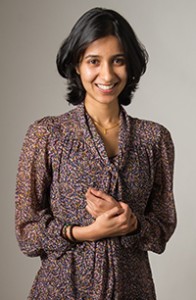Getting cancer can be particularly difficult for young adults – classified by the National Cancer Institute as ages 15 to 39. Because the disease is relatively rare in this age group, these younger patients may find themselves isolated – too old to fit easily into childhood cancer programs, and too young to find peers in adult clinics (most people diagnosed with cancer are 55 or older).
But the outlook is getting brighter.
Doctors and researchers are working on finding solutions to the unique challenges faced by the estimated 72,000 adolescents and young adults annually diagnosed with cancer. Here, Dana-Farber’s Karen Fasciano, PsyD, clinical psychologist and director of the Young Adult Program at Dana-Farber/Brigham and Women’s Cancer Center (DF/BWCC), offers some tips for young adult patients.
 Find others who share your cancer experience. Join a support group or program specifically for young adults with cancer. “It’s important to know you’re not alone,” Fasciano says. “This is particularly important because you’re dealing with cancer at a time when others your age are establishing relationships, starting careers, and finding their place in the world.” At DF/BWCC, the Young Adult Program offers social events, outdoor retreats, and support groups that focus on skill building, education, and networking.
Find others who share your cancer experience. Join a support group or program specifically for young adults with cancer. “It’s important to know you’re not alone,” Fasciano says. “This is particularly important because you’re dealing with cancer at a time when others your age are establishing relationships, starting careers, and finding their place in the world.” At DF/BWCC, the Young Adult Program offers social events, outdoor retreats, and support groups that focus on skill building, education, and networking.- Think about fertility. Some cancer treatments alter the ability to have children in the future, for both men and women. Talk with your health care team and a fertility specialist to learn what options might be appropriate for you.
- Use technology. Keep in touch with other young adults – via email, message boards, or online support groups. DF/BWCC’s Young Adult Program hosts a secure website where members can exchange messages and tips. The program also provides Apple iPads that young adults can use during their visits to Dana-Farber. In addition to offering Internet access, the tablet computers are pre-loaded with apps designed to aid with stress reduction, meditation, and relaxation.
- Create a schedule that works for you. “Cancer treatments can wreak havoc with work and school schedules,” Fasciano says. “Some patients switch to part-time at work or school, but you may also want to think about going on short-term disability or taking a leave of absence.”
 Don’t be afraid to talk about intimacy. If cancer is affecting your dating life or romantic relationship, seek advice. Talk with a professional who can help you address your emotional needs or ask your doctor to refer you to a specialist in sexual health.
Don’t be afraid to talk about intimacy. If cancer is affecting your dating life or romantic relationship, seek advice. Talk with a professional who can help you address your emotional needs or ask your doctor to refer you to a specialist in sexual health.- Expand your horizons. On March 29, Dana-Farber will host its tenth annual Young Adult Cancer Conference, a one-day event for young adult patients (ages 18 to 40) and their caregivers. The conference is open to all young adults – not just those treated at Dana-Farber.

 Don’t be afraid to talk about intimacy. If cancer is affecting your dating life or romantic relationship, seek advice. Talk with a professional who can help you address your emotional needs or ask your doctor to refer you to a specialist in
Don’t be afraid to talk about intimacy. If cancer is affecting your dating life or romantic relationship, seek advice. Talk with a professional who can help you address your emotional needs or ask your doctor to refer you to a specialist in
Cancer is very hard at any age. I feel I was never given enough info. I had to search it all out myself in any way I could. I am very isolated. My only real support group is 2 chemo angels that I hear from about once a week. They have been a Godsend.